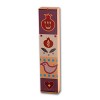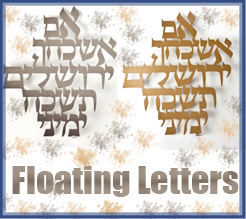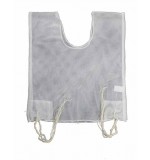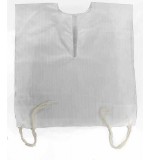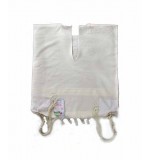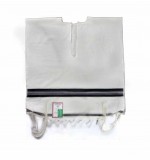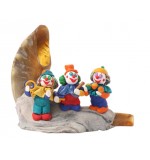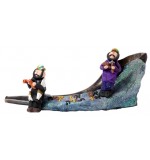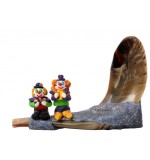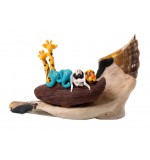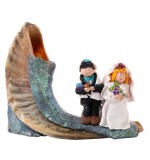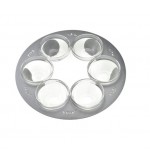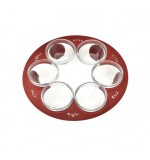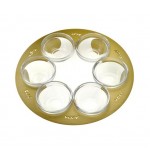Chanuka
A Synopsis:
In order to truly understand the meaning of the word ‘Chanuka’ and what it symbolizes for the Jewish nation, we must travel back two thousand years and step into this turbulent period in our history.
The story of Chanuka begins in the year 336 BCE, at the time when the Greek empire began to overtake the Land of Israel and Judah. Alexander of Macedonia (known as ‘Alexander the Great’) was a Roman general who conquered Asia and also defeated the army of Darius king of Persia; thus becoming the undisputed ruler of the entire Persian Empire, which included the Land of Israel, Syria and Egypt.
Alexander the Great allowed the Jews to lead peaceful lives according to their faith and religion. After his death, a fight broke out between the rulers of Egypt and Syria over the dominion of Israel and Judah. In the year 198 BCE Antiochus III king of Syria conquered the controversial territory of Israel and Judah, and once again the Jews there were allowed to live undisturbed, observing their religion in public and without shame.
But this was not to last forever. In the year 175 BCE, Antiochus IV – known as Antiochus Epiphanies - rose to power. Antiochus wanted to rid the country of all existing cultures, and merge them all into one nation personified by Greek culture. Antiochus, whose recurrent attacks of frenzied insanity were well known, was dubbed ‘Antiochus Epimanes’ (‘crazy’ in Greek). Already from the beginning of his reign it was apparent to all how he abhorred the Jewish nation, mainly because the Jews proudly clung to their religion and refused to bow to paganism and idolatry.
Meanwhile in the Holy Temple (the ‘Bet haMikdash’) trouble was brewing too. The position of High Priest was filled by an evil man by the name of Jason; he promised enormous sums of money to Antiochus, and also assured him that he would succeed in winning over all of Jerusalem’s inhabitants to the Greek culture.
In a dramatic show of his undying allegiance to the king, Jason went so far as to change the name of Jerusalem to Hepolis. The city became an entirely independent entity, run by civilians. Jason further showed his loyalty to Antiochus by revoking the authority of the Chachamim and Torah leaders to lay down rules according to Jewish law and custom. In essence, authority was given over to civilians instead.
Jason received support from several of the wealthiest families in Jerusalem. Once he felt he was firmly established, he began to open institutions of study to teach the Greek culture to the masses. The Jews who succumbed and spurned their faith were termed ‘Hellenists’ by their fellow Jews.
Menelaus was also a Priest in the Temple but unconnected to the family of the High Priest. He was a Hellenist and was deeply envious of Jason and his prestige. He searched for ways to topple him from the seat of the High Priest, and seize it for himself.
The opportunity finally presented itself one day when Jason sent him to be his representative to Antiochus. Menelaus stole golden vessels from the Temple and used it to bribe Antiochus to demote Jason and appoint him, Menelaus as High Priest instead. This, despite the fact that he did not descend from a family of High Priests and thus had no claim to the exalted position at all. At the same time Menelaus killed the previous High Priest, who had been dethroned by Jason, and also killed many others who protested his plunder of the Holy Temple.
At the end of the year 167 BCE Antiochus imposed decrees forbidding the Jews to keep the commandments of the Torah, and demanded that they conduct their lives according to the Greek culture. Cruelly, Antiochus forbade:
- Service in the Temple (Avoda)
- Observance of Shabbos and festivals
- Worship of G-d. Instead, they had to believe in and worship idols
- Bris Milah – circumcision
- The study of Torah
For three long years the cruel edicts remained in effect, until the year 164 BCE. The Jews were forced to leave the ways of the Torah, and had to prove their loyalty to the Greek faith by eating pork in public and participating in pagan ceremonies. Many who refused were punished by death.
Countless stories of faith and courage emerge from that turbulent period in history, about those who valiantly sought to sanctify G-d’s name. Women who circumsized their own sons; Elazar who refused to eat the pork and was killed; the famous story of Chana and her seven sons: after being caught by Greek legionnaires they were forced to eat pig’s meat. The courageous sons refused, and one by one were murdered in front of their mother’s eyes. At the end, she too was killed and a heavenly voice called out: ‘the mother of sons rejoices!’
Matisyahu the Priest:
Soldiers of Antiochus arrived in Modi’in – a small city in the hills of Judea, and erected a pagan altar in the town center. They ordered the Jews to bring sacrifices, and when they came to Matisyahu son of Yochanan the High Priest he defiantly called out:
“If all the people in the King’s house listen to him…
And I and my sons and brothers will go in the covenant of our fathers
Woe to us to leave the Torah and its commandments
The words of the king we will not heed, to veer from our divine service neither right nor left”
(Macabim 19:1)
As Matisyahu concluded his fiery declaration, he noticed a Hellenist Jew approaching the altar to offer up a sacrifice. Zealously he ran up to the Jew and killed him, then turned and killed the Greek legionnaires, and finally he demolished the pagan altar. Then Matisyahu and his family fled to the hills of Gofna, an area full of caves and hidden alcoves that were difficult to enter. He gathered his sons around him and said: ‘Come, let us go out and fight the Greek army and their king Antiochus; even though they are many and strong whilst we are few and weak…’
Matisyahu and his sons emerged from their cave and called out with a battlecry: ‘Whoever is for G-d, come to me!’ and then they went out to battle. Yehuda, one of the five sons, engraved on his shield the word ‘Macabi’ – acronym for the words ‘Mi kamocha Ba’elim (Hashem)’ Who is like You amongst the powerful, O G-d. Thereafter he was known as Yehuda haMacabee.
The Revolt:
Yehuda mobilized the warriors, trained them and started out with sporadic attacks on the army convoys on their way to Jerusalem. The rebels succeeded in taking control of small villages of Judea, where they had the willing support of the residents.
Antiochus was beside himself with fury. How he wished he could find a way to subdue these rebels who refused to bow to his dominion! He decided to try the secret weapon he had kept for just such an occasion: elephants.
So it was that one day a horrified cry ran through the Macabee army camp: Elephants! A herd of enormous, hulking elephants with skin heavy and thick advanced upon the unwitting Jewish soldiers, leaving behind a trail of chaos and devastation.
But the Macabim, despite their hopeless situation, displayed profound courage and resourcefulness as they gathered their best marksmen, positioned them in view of the colossal animals and waited for them to shoot. The men drew their bows back - and suddenly the air was full of deadly arrows, arching gracefully across the battlefield. In an instant the arrogant Greek generals began to topple from their fortresses atop the elephants backs.. Elazar the Macabee ran swiftly towards the leading elephant, thrust his sword deep into its thick skin, and with an anguished roar the beast sank to the ground…
And so the secret weapon of Antiochus proved futile in the face of the invincible Macabim. The last test the courageous Jewish army had to face occurred in the city of Emmaus, located near Beit Govrim on the way to Jerusalem. Yehuda haMacabee heard that a vast army camp was situated there, blocking off the road to Jerusalem. He mobilized his men and at daybreak he issued a shrill cry: Attack! The rays of the rising sun illuminated the battlefield as the two armies struggled in fierce combat. The Greeks had been taken by surprise, and soon enough realized they had no choice but to surrender.
Now the path was clear for the triumphant Macabee army to lay siege to Jerusalem, wait for the enemy to surrender in defeat and head towards their beloved, forsaken Temple.
Purifying the Desecrated Temple:
A horrifying sight greeted them. The courtyard was vandalized, littered, and the holy vessels lay strewn around in a shocking state of disrepair. But the battle-weary soldiers quickly shrugged off their shock and dismay, and immediately set to work: they destroyed the idols, cleaned the Heichal and purified the defiled vessels so that the Avoda (Temple Service) could resume once again. All this took place on the 25th of Kislev, three years after the evil decrees had been issued by Antiochus.
An awesome miracle had just occurred: the few had conquered the many, and driven them out of the holy Land. The Jews yearned to begin the Avoda once again - to bring sacrifices and offer up thanks to their Creator Who had performed such open miracles for them. But when the Menorah (the 7-branched candelabra) was cleaned and its golden surface once again gleamed brightly, the men looked around for some unsullied oil to kindle the lamps – and to their dismay, not a drop of pure oil was to be found in the entire Temple Mount! No oil to light up the Menorah – it was inconceivable, after all they had endured. Until finally, a triumphant cry was heard: ‘Here is a small jug of oil in this crevice - it is still sealed, with the stamp of the High Priest!’ There was only a little oil in the flask… enough for just one day. And that is when the miracle of the oil occurred: the oil sufficed and the Menorah burned brightly for eight days – until new oil could be pressed and brought to the Temple.
Thus we celebrate Chanuka for eight days. We celebrate both miracles: that of the victory over the Greeks (Chanuka = Chanu, they rested, on Kaf Heh – the 25th of Kislev); and the miracle of the oil (Chanuka = Chanukat Bet haMikdash, the oil enabled the Temple to be inaugurated once again).
Unlike the festival of Purim, there is no Megillah in which the story of Chanuka was recorded for posterity. This is because the miracles of Chanuka occurred over 200 years after the Tanach was concluded. The only historical source for the story of Chanuka is the Sefer ‘Macabim’, in which the entire series of magnificent miracles is related in full detail.
Lighting the Menorah: How, When, Where:
Known as the Festival of Lights, Chanuka is a joyous festival marked by the lighting of the Menorah in every Jewish home. One light is kindled on the first night, and every subsequent evening we add another light. We use the ‘Shamesh’ – a separate light, to kindle the lights of the Menorah since the actual lights of the Menorah themselves may not be used for any purpose other than for viewing.
The total number of lights kindled throughout Chanuka is 36, and together with the ‘Shamesh’; 44.
There are those who are stringent and wish to beautify the commandment, and so instead of using wax candles they use olive oil in memory of the holy oil that was used for the Menorah in the Temple. The Menorah of the Temple had only seven branches, whilst the ones we light have 8 branches plus the Shamesh.
Publicizing the Miracle:
So that as many people as possible can view the lights and be reminded of the miracles that G-d performed long ago, it is customary to place the Menorah by the entrance of the house or by a window that is facing the street. There are those who even place their Menorah outside the house in a protective glass box, for everyone to see.
The Menorah should be lit from left to right, and then the following two blessings are recited:
- ‘Baruch atah (Hashem) elokaynu melech ha’olam asher kideshanu bemitzvosav vetzivanu l’hadlik ner shel chanuka’ …Who sanctified us with the commandments and commanded us to kindle the lights of Chanuka
-‘Baruch atah (Hashem) elokaynu melech ha’olam She’asa nissim l’avoseinu bayamim hahem b’zman hazeh’ ….Who performed miracles for our fathers in those days at this time
On the very first night, we add another blessing: ‘Baruch atah (Hashem) elokaynu melech ha’olam Shehecheyanu v’kiyemanu v’higiyanu l’zman hazeh’ … Who kept us alive and sustained us, and allowed us to reach this day.
After the blessings, ‘Maoz Tzur’ is sung as well as ‘Haneros halalu’. Work should not be done for at least half an hour after the Menorah is lit; it is a time to eat the special foods prepared in honor of Chanuka (see below), to play ‘dreidel’ (see below) and to contemplate upon the miracles of Chanuka.
On Chanuka there are no special prayers as on other festivals, but we do say the whole of ‘Hallel’ (a collection of psalms praising G-d that is said after the morning prayers). We also add ‘Al HaNissim’ to the Amidah service and to Grace after Meals.
Customs of Chanuka:
Traditional Foods:
On Chanuka it is a custom to eat foods rich in oil, in memory of the miracle of oil. Dairy foods are eaten in memory of the righteous Yehudis of the Hasmonean family; she entered the Greek encampment and fed the general Eliphornus salty cheese – this made him very thirsty and so she plied him with wine. After he fell into a drunken stupor she took his sword, severed the villain’s head and transported it back to the besieged city of Jerusalem, where she placed it atop the wall. When the Greek soldiers looked up and saw it, they fled in terror…
Typical foods made with oil are doughnuts, and ‘latkes’ – small potato patties fried in oil.
‘Chanuka Gelt’
A favorite and time-honored custom is that of giving children money or gifts on Chanuka. This is in memory of the victorious Macabim, who upon returning to Jerusalem minted their own coins in order to prove their newly acquired independence.
The ‘Dreidel’ Game:
According to age-old legend, the beloved ‘dreidel’ (spinning top) dates back to the time of the Macabim. When Antiochus decreed that the Jews may not study Torah, he did not realize he was dealing with a stubborn people who would not forsake their Torah at any cost. They entered caves in the rocky hills and studied Torah in secret. They placed a lookout at the entrance to each cave, and when he saw a troop of Greek legionnaires approaching on the horizon, he would give a call and the courageous Jews inside would swiftly hide their holy books and take out their ‘dreidels’. When the soldiers entered, they were faced with a group of Jews who looked as though they had been playing with their spinning tops for a long while.
Thus it was that the humble ‘dreidel’ saved many lives. As such it has now become an integral part of Chanuka, a symbol of faith and love of the Torah. The traditional dreidel is made out of wood, plastic or metal. On each of the four sides of the dreidel appears a letter: Nun, Gimmel, Heh and Pay – acronym for ‘Nes Gadol Haya Poh’ – a great miracle occurred here. (In countries outside of the Holy Land the letter Pay is substituted for Shin – as in ‘Sham’ – a great miracle happened there, in the Land of Israel).
The dreidel game is a delightful way of passing the time as the family gathers in the golden glow of the Chanuka lights. For those who play with money, it is a way of potentially increasing their ‘Chanuka Gelt’. The rules of the game vary but there is usually a bank in the center of the table, and each player has a turn to spin the dreidel. If it falls on Gimmel, he is lucky – he receives the entire bank; when it falls on Heh he takes Half; if his luck fails and it falls on Nun he receives Nothing.. and if to his misfortune it falls on Pay, then he has to ‘pay’ all his money to the bank… A charming game combining past and present in a delightful blend.
The Menorah;
When Yehuda haMacabee recaptured Jerusalem from the Greeks, the magnificent Menorah in the Temple was kindled once again and the glory of the Temple returned as in former times. The nation celebrated the double miracle for the duration of eight days, with feasts, wine music and song.
Long before the story of Chanuka took place, G-d instructed Moses in the desert to create a Menorah of seven branches, to illuminate the Mishkan with its holy light and eventually to be transferred to the Holy Temple itself, when the Jewish nation would arrive in the Promised Land.
When our ancestors wished to kindle a Menorah in memory of the awesome miracles of Chanuka, they knew that it was forbidden to simulate the seven-branched Menorah that was unique to the Holy Temple. But they sincerely wished to give expression to the miracle of the small flask of oil that sufficed for eight days, and thus the Chanuka Menorah was born: an eight-branched candelabra with a ninth branch, the ‘Shamash’. From then until today, the light of the Chanuka Menorah illuminates the winding pathways of our history, and warms the frigid hearts of a nation cast into a long and bitter exile
